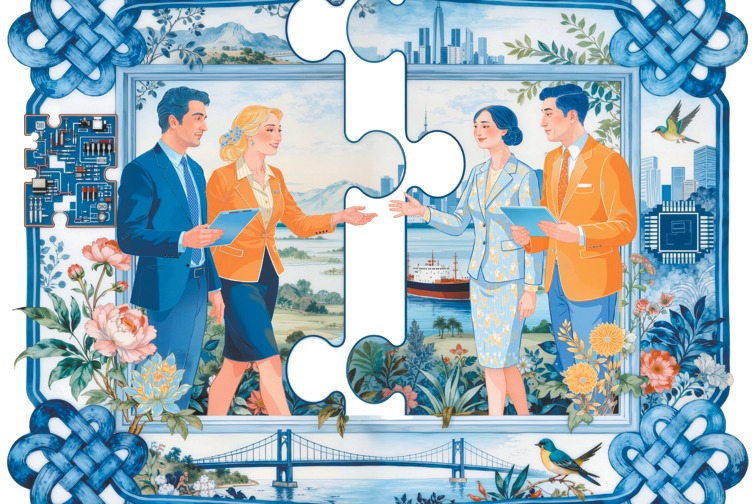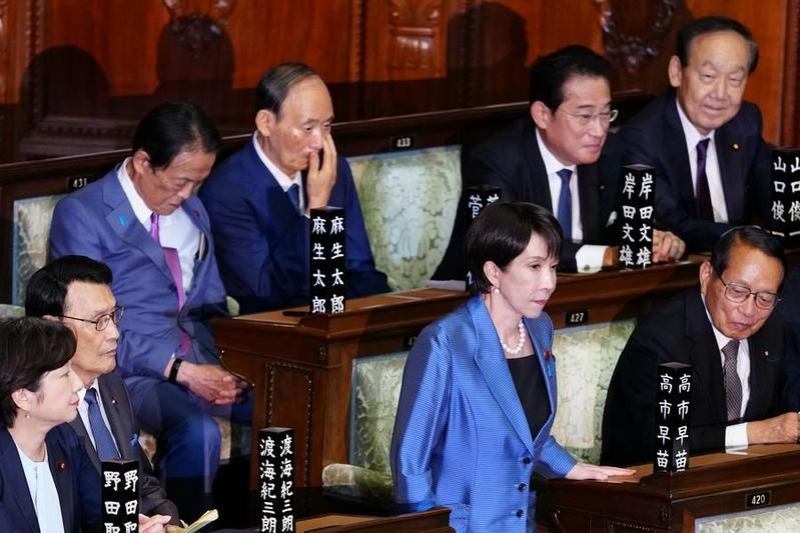Distilled wisdom of history


Principles of the UN charter are an indispensable platform for cooperation toward a shared future for humankind
Ideology is an inherent part of politics and has a significant impact on policymaking.
However, at the international level, there is a strong need to move beyond ideology and define common objectives for states and adequate conceptual frameworks for cooperation.
Given the global spread of the novel coronavirus, it is obvious that the problem can be addressed effectively only through global, multilaterally organized cooperation. Multilateralism at the global level is an antidote to ideology. However, we are also witnessing a dangerous rise in nationalism, an ideology that makes global cooperation much more difficult. The level of multilateral cooperation today is insufficient, largely because of the shortsighted and nationalistic policies of the current United States leadership.
So how do we move forward in these circumstances? To begin with, it is useful to keep states' sovereignty and national interests in mind. As we are commemorating the 75th anniversary of the founding of the United Nations, we must recall that "the organization is based on the principle of the sovereign equality of all its Members" (Article 2 paragraph 1 of the UN Charter).
However, in today's world, safeguarding sovereignty and national interests require international cooperation, which, in turn, requires moderation and a search for common ground with others. International cooperation is no longer a mere option for states-it is an obligation under international law-the "duty of states to cooperate with one another in accordance with the Charter".
So the first step for states to shed ideological differences is to reaffirm and recommit themselves to the principles of the UN Charter. These principles represent the distilled wisdom of history-they are an indispensable platform for cooperation toward a shared future for humankind.
While the basic principles are important, they are not enough. Today, the world needs a clear sense of practical priorities. Let me suggest four:
First, it is essential to empower the World Health Organization. No other organization is capable of replacing it. On May 19, the World Health Assembly adopted a resolution that indicates the path toward necessary reforms. The decision-making powers and financial resources of the WHO must be strengthened.
Second, reversing the economic fallout of the pandemic requires coordinated international action. It is important that the current international financial support is not terminated prematurely. In the field of trade, it will be important to maintain the international supply chains and make them more resilient. As the Organization for the Economic Cooperation and Development suggested, shorter supply chains, backed up by stronger stocks and preparations for possible future shocks are the right economic, non-ideological choice.
Third, the world must not lose sight of the sustainable development goals and, above all, priority actions to combat global warming. Renewal of support for the 2016 Paris Agreement is necessary.
Fourth, innovation is critical for all progress and multilateralism is no exception to this. One way to innovate is to empower and reform the existing international mechanisms of cooperation. The WHO is a case in point.
But there are other ways to innovate. Let us take the example of the Belt and Road Initiative, which is an innovation itself. The Belt and Road Initiative has been an important "brand name". It is now important to develop new forms of multilateral arrangements around the initiative's key concept of "connectivity".
This concept is well established by the Belt and Road Initiative and in other, mainly regional projects in the field of infrastructure in Europe, Asia, Africa and Latin America. The largest investments in the future will lie in telecommunications, transport and energy infrastructure, and water infrastructure.
There will be an urgent need to "multilateralize" and coordinate globally all the activities in these critical areas of investment. The Belt and Road Initiative is the most powerful among the initiatives in this domain and should show the way forward. Connectivity, the central idea of the Belt and Road Initiative, is the way to our shared future. The world will need generally applicable international norms, standards and institutions.
Last year, the G20 Summit in Osaka introduced a set of "principles for quality infrastructure investment"-covering, inter alia, issues of environmental protection, debt sustainability and governance. That is an interesting beginning.
The European Union and China should establish an ASEM(Asia-Europe Meeting) Connectivity Forum for regular consultations and interaction between states, private sector and academia, many of which are active in the framework of the Belt and Road Initiative. The forum could promote further development of connectivity and help devise an agreed normative framework that would allow competition and cooperation to take place simultaneously.
There is a also need for larger steps toward a "global connectivity agenda". Ideally, this agenda should include a vision of engaging the World Trade Organization where a WTO code of conduct on connectivity could be negotiated. In addition, a specialized WTO body could be set up for enhancing connectivity.
Admittedly, this sounds like a long shot today, with the WTO in paralysis. But history is witness to how the WTO has reinvented itself once every decade or two from a purely tariff-related mechanism dealing with the trade in goods to one that deals with trade in services, investment and trade-related intellectual property.
There is an important role for think tanks and universities in all this. Discussions can generate useful and actionable ideas. We must not be constrained by the pandemic. It will pass. The world needs a vision of a shared future without ideological constrains and connectivity is the key. Let us make a contribution worthy of the challenges of our time. Let this moment be "our finest hour".
The author is former president of Slovenia, non-resident senior fellow of Chongyang Institute for Financial Studies at the Renmin University of China. The author contributed this article to China Watch, a think tank powered by China Daily. The views do not necessarily reflect those of China Daily.

































